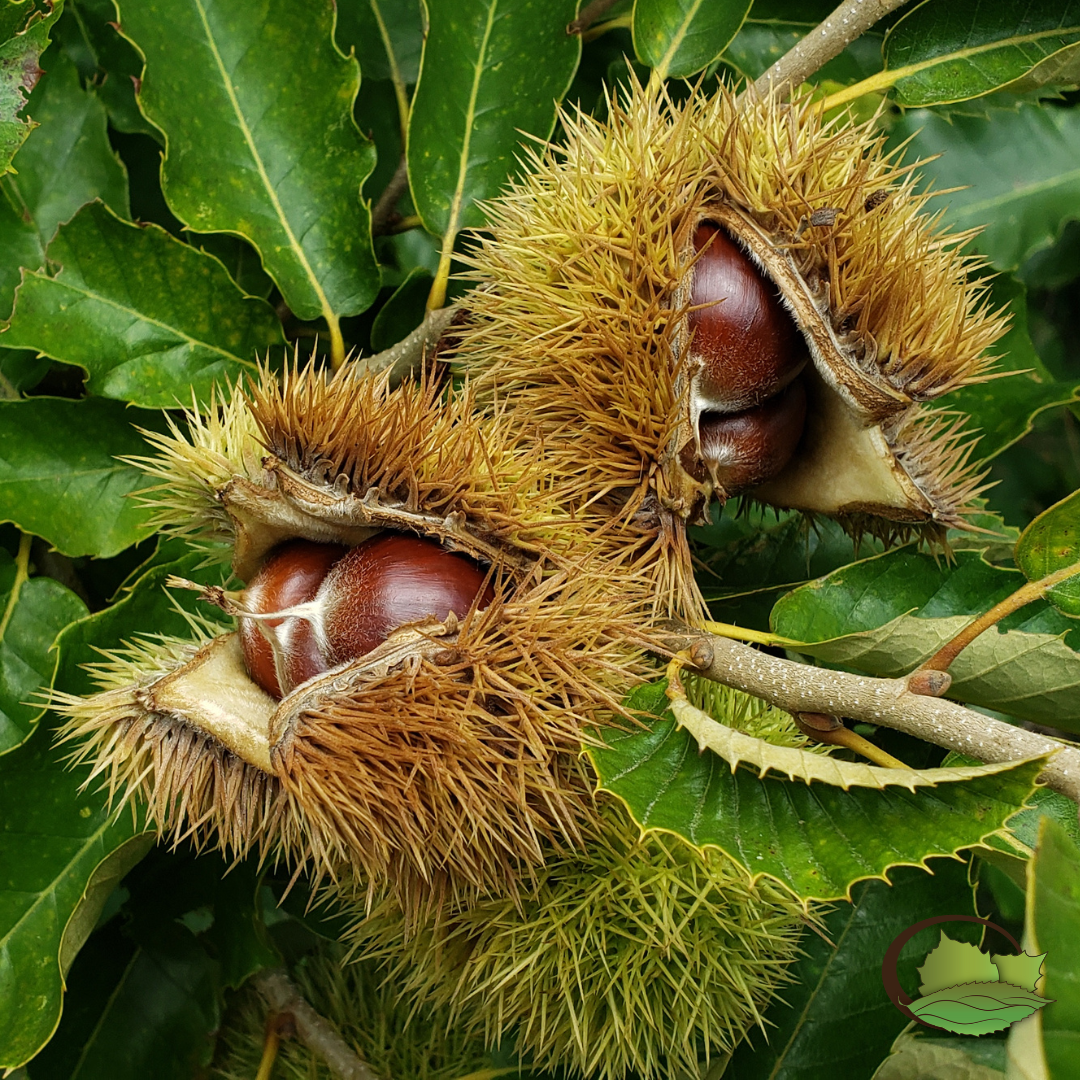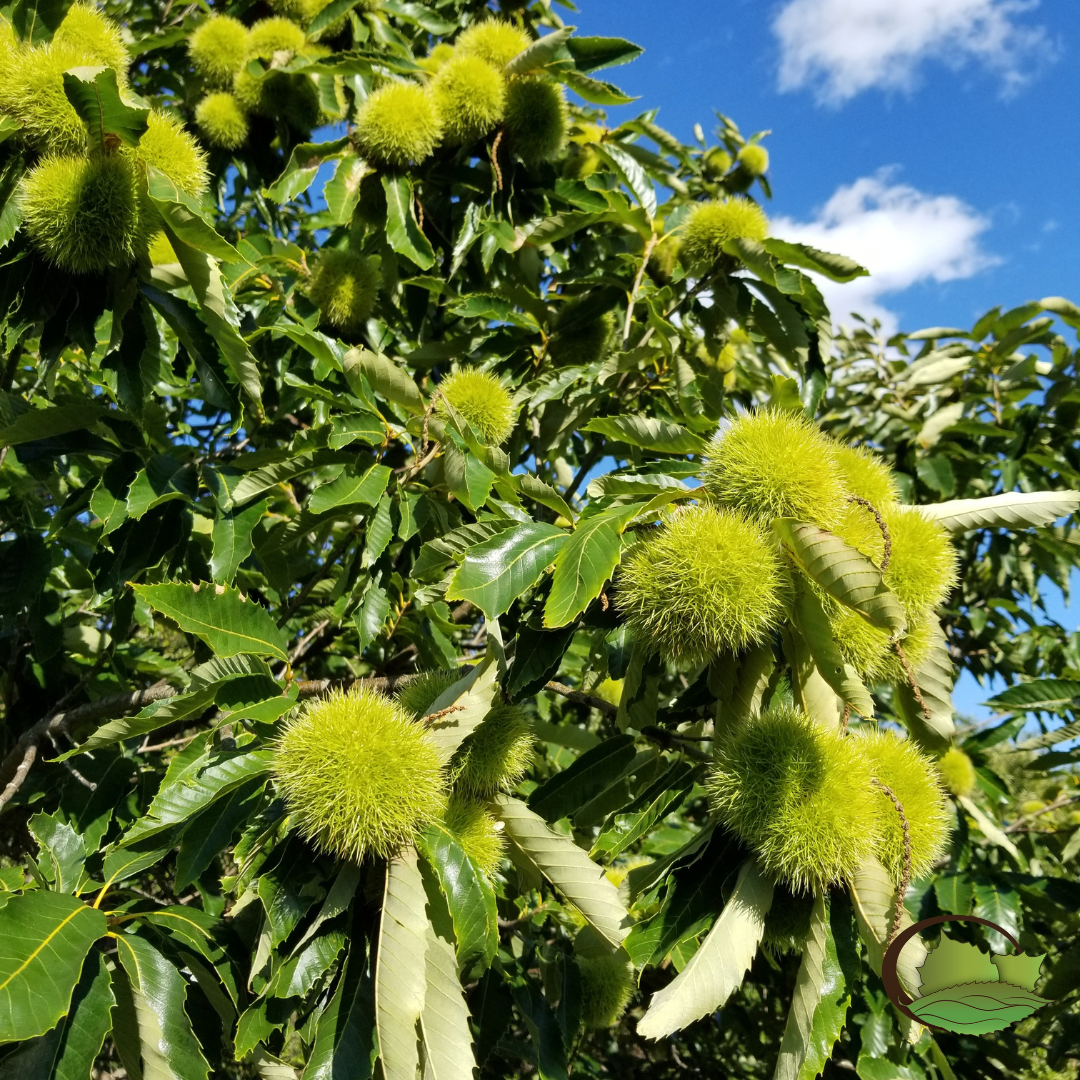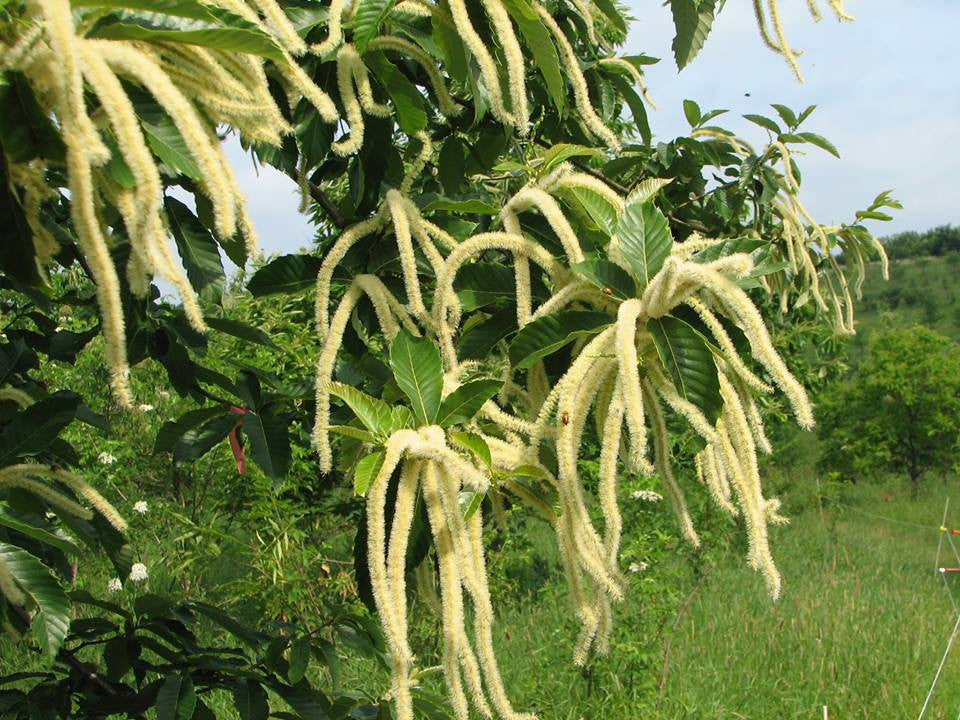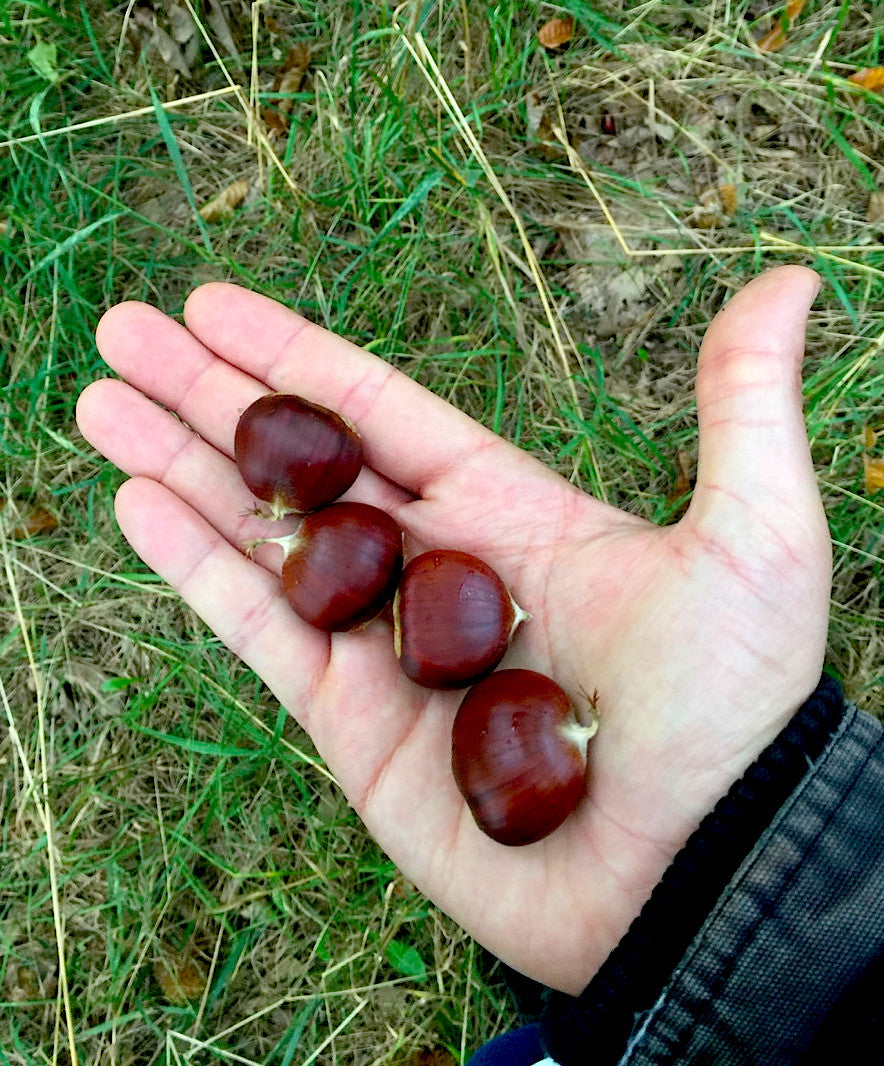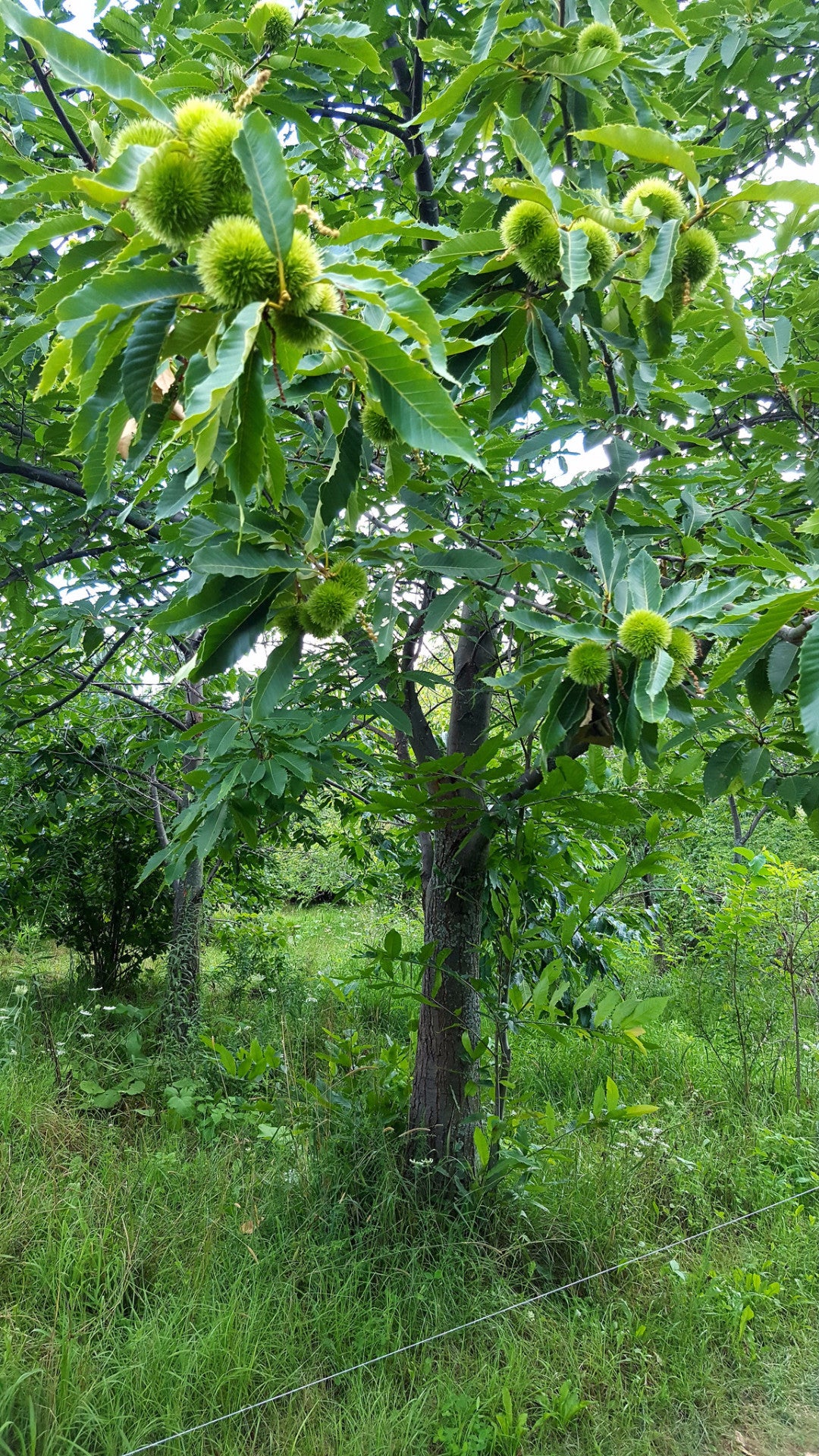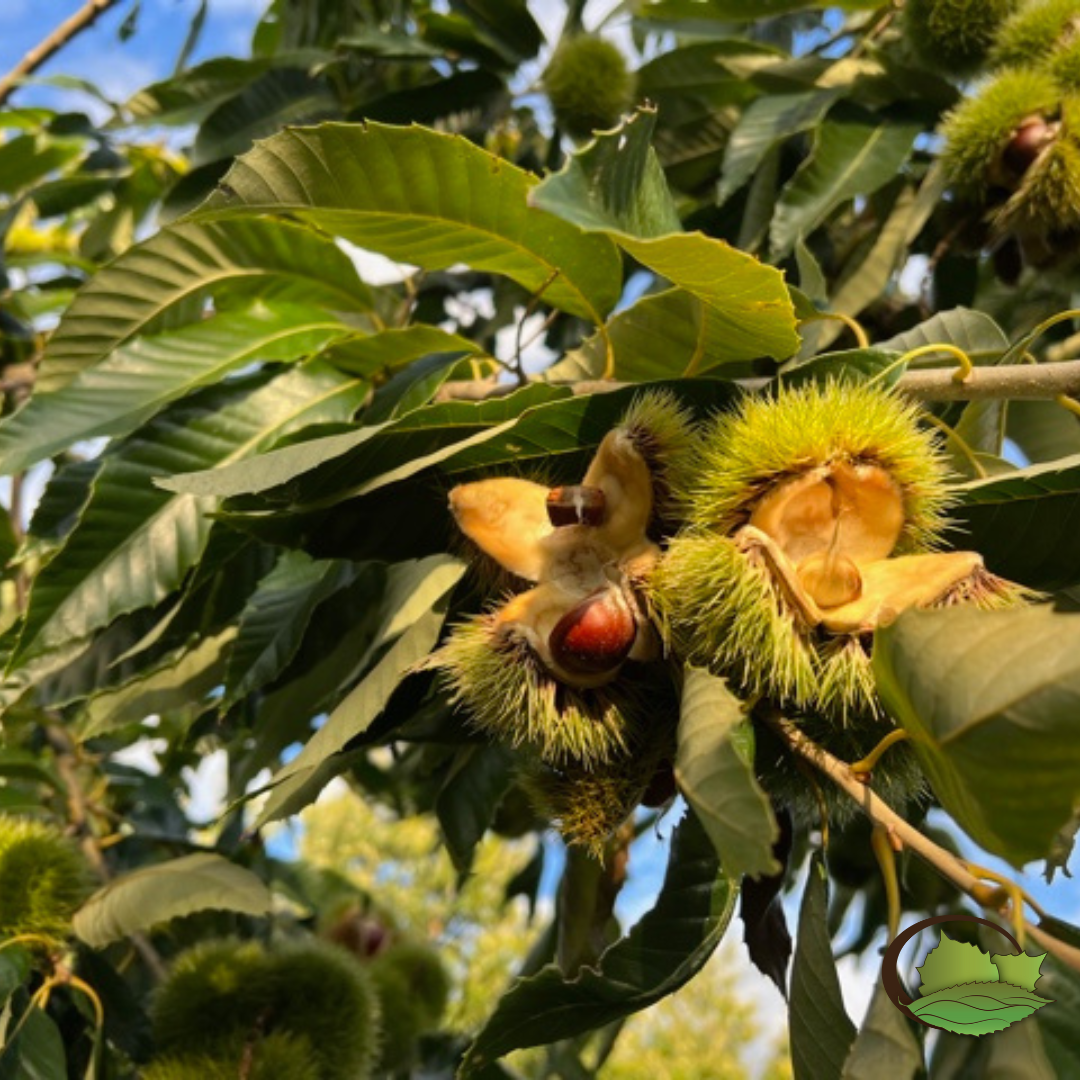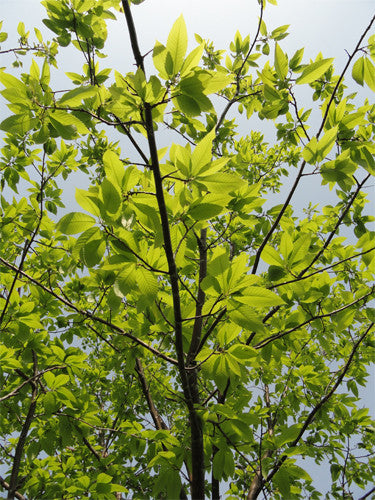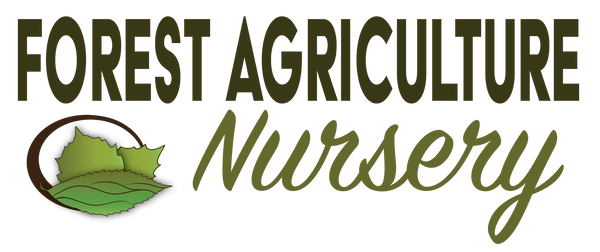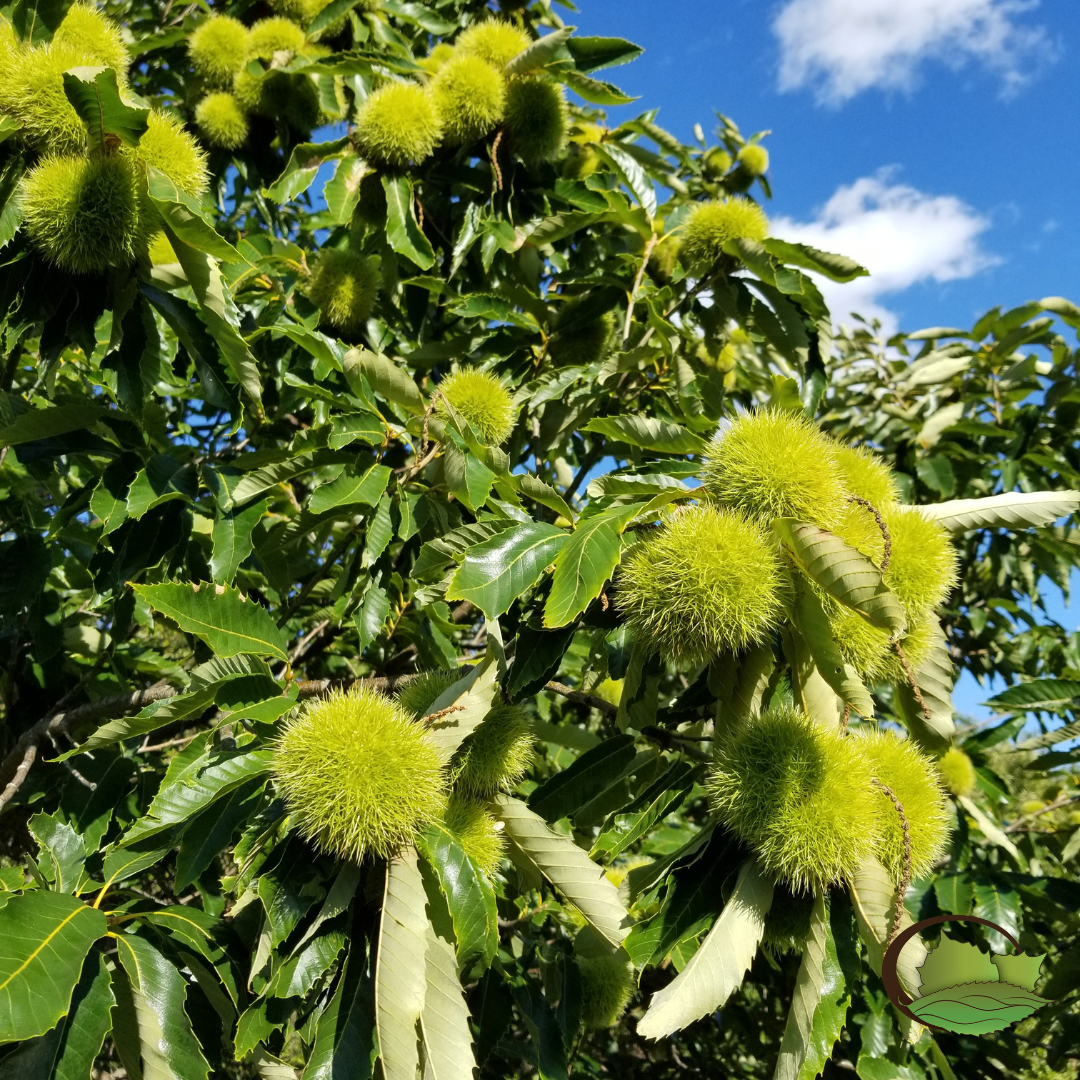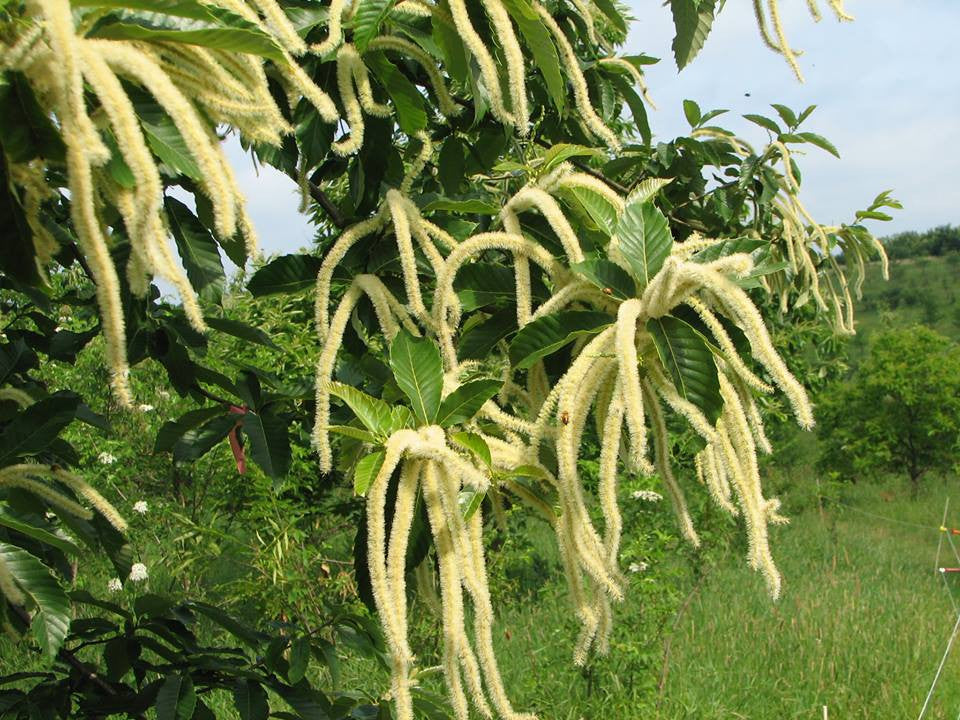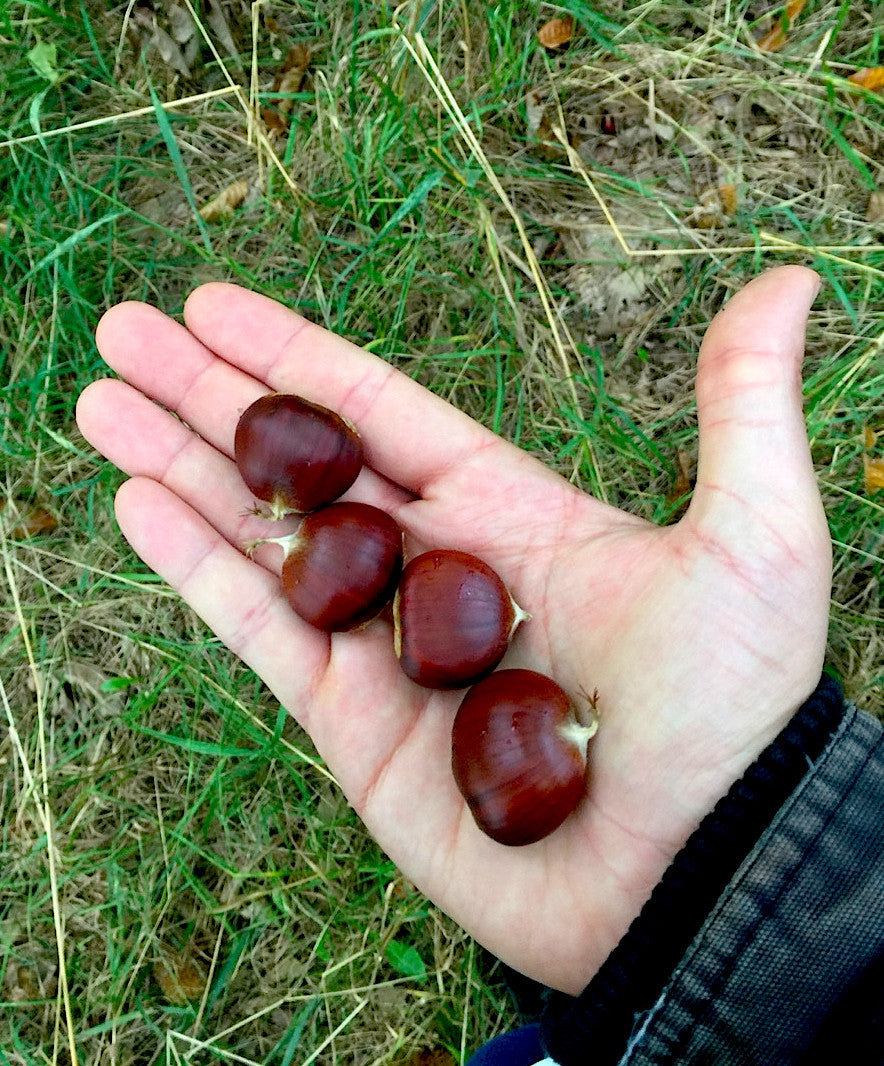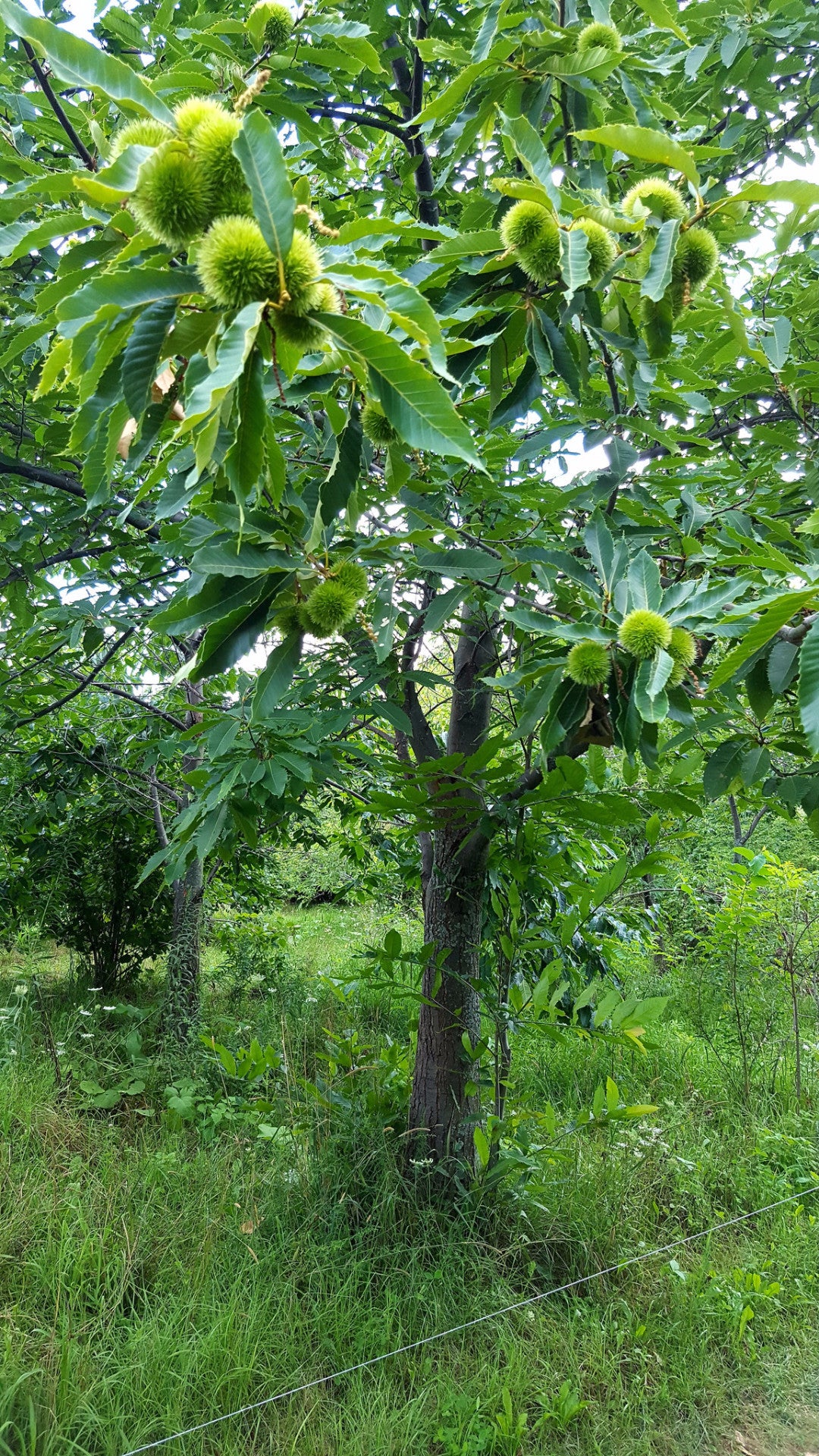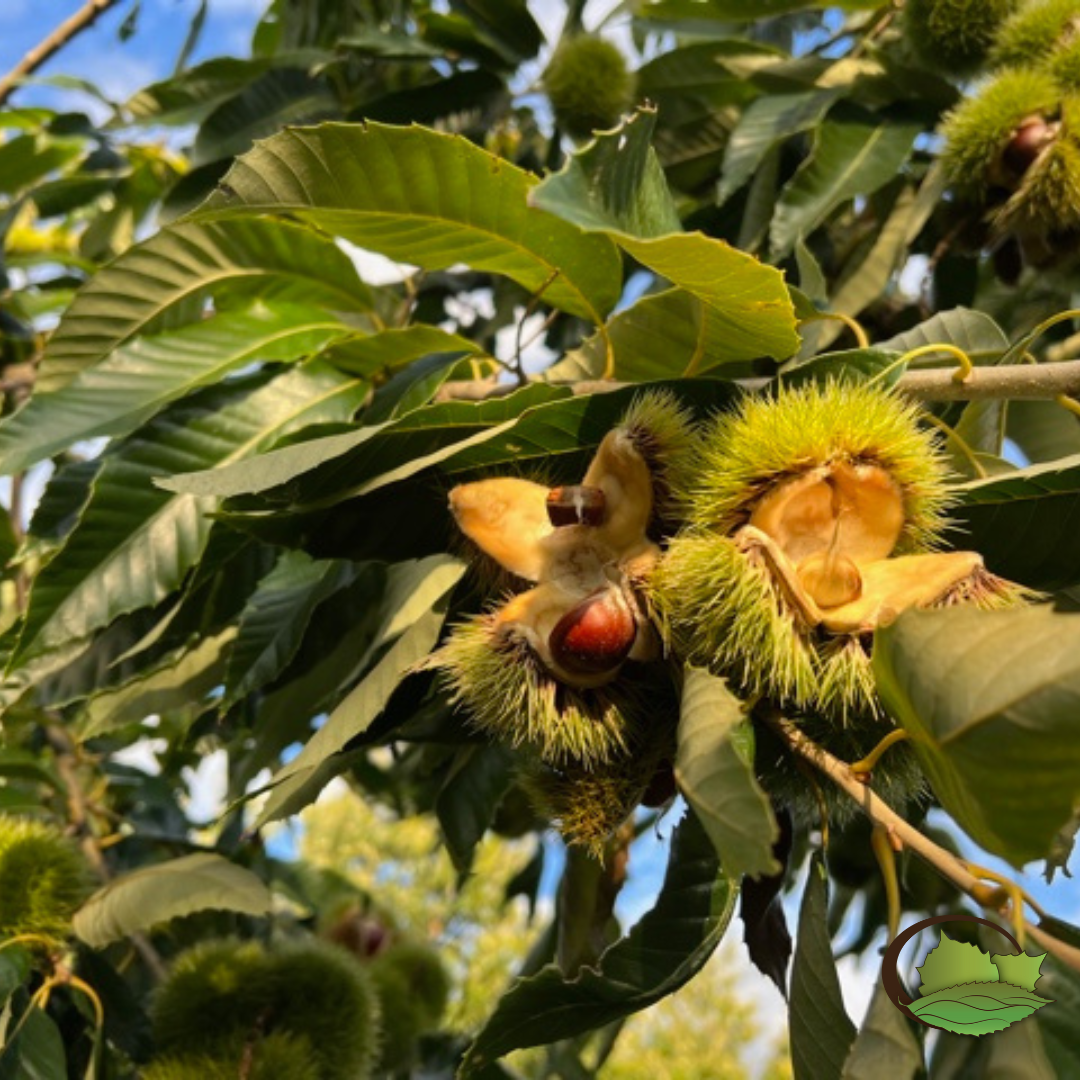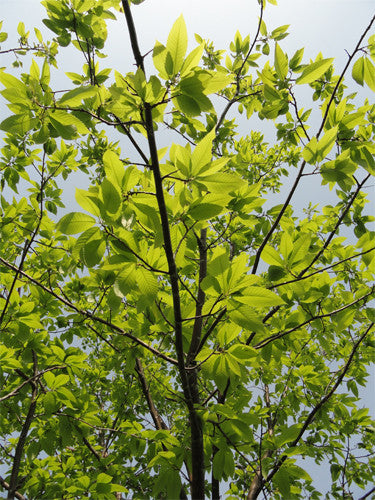forestag
Hybrid Chestnuts (Castanea spp.)
Hybrid Chestnuts (Castanea spp.)
Couldn't load pickup availability
Share
Chestnuts are essentially corn that grows on trees!
The Hybrid Chestnuts (Castanea spp.) are a solution for those looking to cultivate chestnut trees with improved resilience and productivity. Originating from genetic stock sourced from Minnesota, Oregon, and Ontario, these hybrids are specifically bred to thrive in the unique conditions of Southwest Wisconsin. They are the only chestnut varieties that reliably produce nuts in this region, making them an excellent choice for local growers.
Our breeding goals focus on achieving high yields at an earlier age, ensuring pest and disease resistance, and promoting suitability for low-input operations. While the nuts may not be as large as those of the Chinese chestnut, many of these hybrids will begin to flower as early as their fifth year, providing an earlier harvest.
It’s important to note that some hybrids may be susceptible to chestnut blight, depending on the expression of their American genetics. This careful breeding process aims to balance productive traits with resilience against diseases, ensuring these trees can thrive in diverse environments.
Plant Characteristics:
- Scientific Name: Castanea spp.
- Size & Shape: Varies by hybrid; generally grows 30-50 feet tall with a broad crown.
- Fruit Type: Edible nuts enclosed in spiny burrs; nut size may vary.
- Flowering: Many hybrids begin flowering in their fifth year, facilitating early nut production.
- Ecological Benefits: Hybrid Chestnuts contribute to soil health, provide shade, and enhance biodiversity in agroforestry systems.
- Wildlife Benefits: Nuts are a valuable food source for wildlife, including deer, squirrels, and various birds.
Growing Conditions:
- Sun Requirement: Prefers full sun.
- Water Requirement: Moderate water needs; appreciates well-drained soils.
- Hardiness Zone: Zones 4-8.
- Soil Preference: Thrives in rich, well-drained soils and is suitable for low-input conditions.
